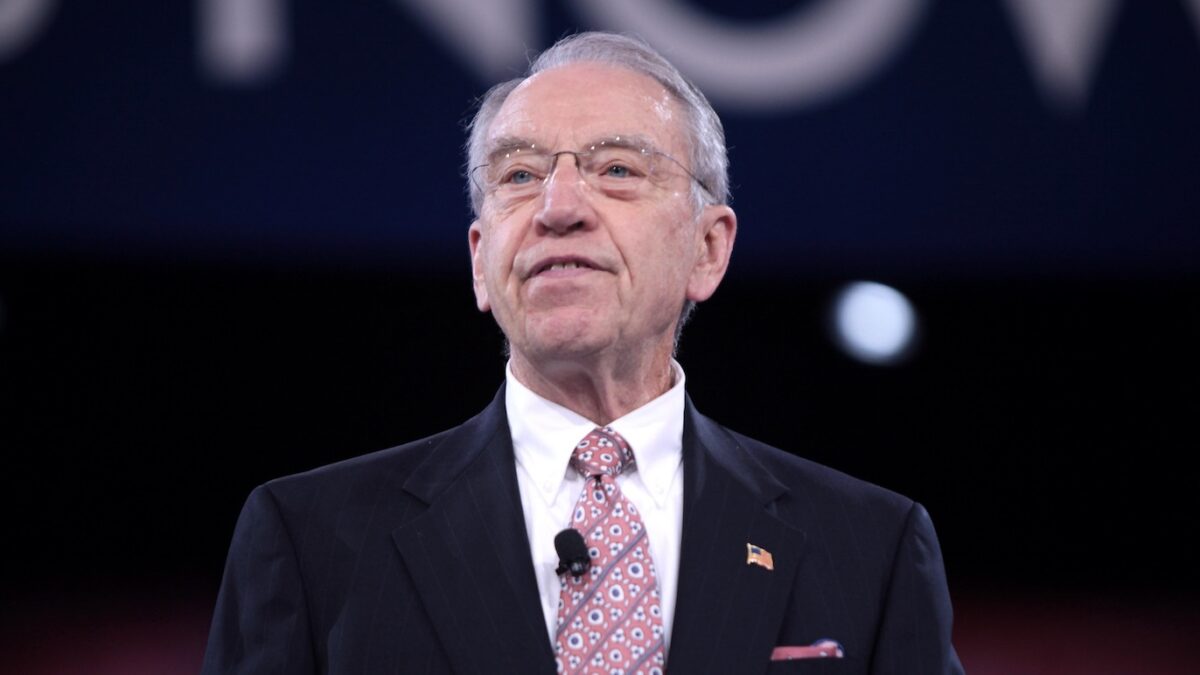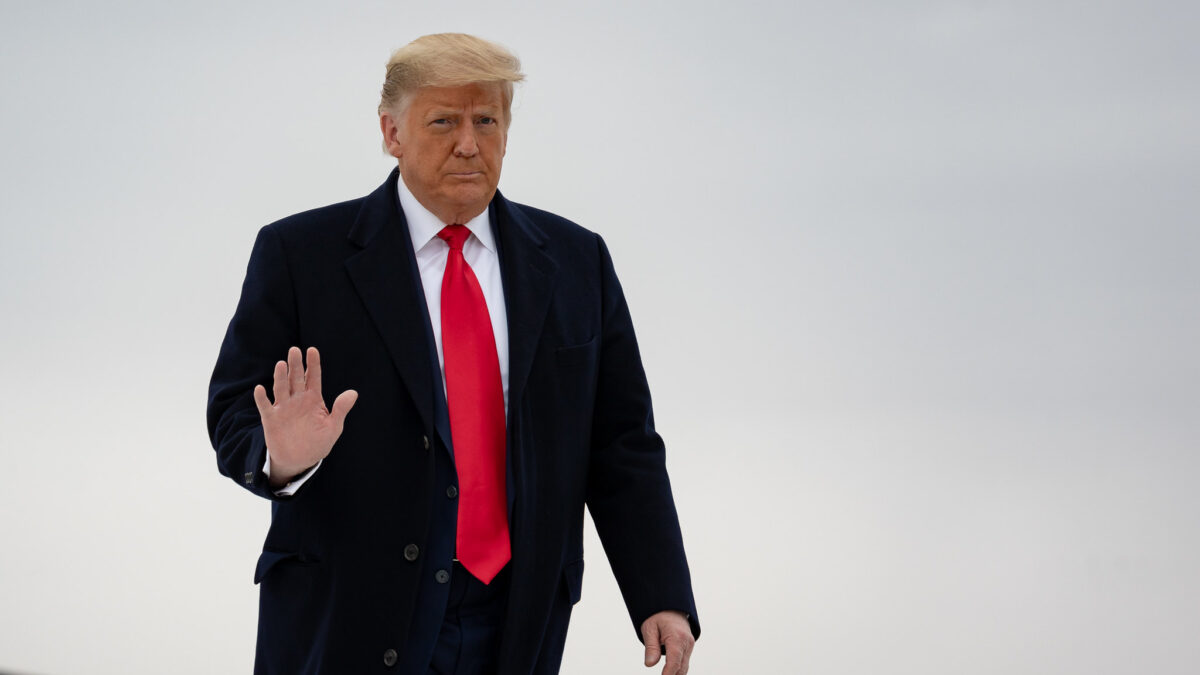
Monday the Washington Post profiled Fusion GPS, the Washington DC-based communications shop that assembled and distributed the “dossier” alleging that Donald Trump colluded with Russia to win the 2016 election. The longish Post feature on the firm founded by former Wall Street Journal reporter Glenn Simpson is what savvy media folks call a “deep dig”—the Post calls it “a review.” It burrows into a number of the outfit’s other projects, like publicizing the domestic disputes involving a former mayor of Beverly Hills, and digging up dirt on a competitor of a San Francisco museum proposed by “Star Wars” director George Lucas.
The Post lets on that it’s not pulling any punches. Fusion GPS, the paper acknowledges, “has at times used hardball tactics.” They paid ex-journalists who may have misrepresented themselves as journalists. Simpson’s firm dissuaded some former Journal colleagues from writing a tough piece about their clients.One local politician targeted by Fusion GPS says they were all about “dirty politics and misinformation.” After all, these purveyors of “journalism for rent,” as Simpson brands his work, never said they weren’t interested in making money. Journalism is the new Wild West and the Post concludes that these guns for hire are among the best there is. “The Post’s review,” claims the Post, “represents the most comprehensive look at the firm’s work.”
Hardly. It makes no mention of some of the outfit’s more notorious, and widely reported, projects—work that shows a very different side to the charming, albeit hard-charging, rogues profiled in the Post. Fusion GPS spearheaded the campaign to undo the Magnitsky Act, American legislation imposing sanctions on Russian officials and other figures close to Vladimir Putin. Their work featured a smear campaign against the driving force behind the Magnitsky Act, financier William Browder.
“I am surprised that the profile of Fusion GPS and Glenn Simpson failed to mention my allegations that Simpson violated the Foreign Agents Registration Act rules, which I testified about at the senate Judiciary Committee in July,” Browder told me. “Nor did it mention his work for Natalia Veselnitskya trying to repeal the Magnitsky Act.”
Maybe the Post thought that those details would have been too difficult for its readers to square. You mean, Fusion GPS did pro-Kremlin work? What about its storied reputation for having exposed Trump’s ties to Russia? And what about Natalia Veselnitskaya? Isn’t she the Russian lawyer whose meeting with Donald Trump Jr. is the smoking gun proving that the Trump campaign was masterminded in Moscow? So now you’re telling me that Veselniytskaya and the Fusion GPS team were on the same side, trying to undermine the US sanctions that the dossier said Trump was going to relieve? Gee, maybe I have to rethink Russiagate… The fear of that happening is one reason the Post omitted significant facts.
“It’s as if Fusion GPS gave the Washington Post a dossier on the hard-working and wholesome researchers working at Fusion GPS,” says Thor Halvorssen, a human rights activist who was targeted by a Fusion GPS smear campaign on behalf of corrupt Venezuelan businessmen. “The Post ignored some of Fusion GPS’s worst excesses, including the scorched earth tactics they used against a journalist in London who was whistleblowing corruption in Venezuela, Alek Boyd. Fusion GPS planted stories that he was a rapist and pedophile.”
The Washington Post story is a whitewash. The paper’s newsroom is a reliable Fusion GPS ally, staffed by several former Wall Street Journal reporters who shared bylines with Simpson and other Fusion GPS principals who also worked at the Journal. The Washington Post helped the firm alleviate pressure in the recent past. When the House Permanent Select Committee on Intelligence subpoenaed the Fusion GPS’ bank records to find out who paid for the Steele dossier, in October the Post broke the story that journalists had been trying to nail down for months—it was the Democratic National Committee and the Clinton campaign who hired Fusion GPS to compile the dossier. The lead byline on the article belonged to Adam Entous, a former Journal reporter and, says a veteran of the national security beat, “tight with Fusion GPS.”
If you can use the press for clients, you can use it for yourself, too. Put out a story through friendly journalists that seems honest enough, doesn’t make the firm look like Boy Scouts, but not so bad after all. Fill news space with something so it doesn’t like you have something to hide.
Why is Fusion GPS on defense this time? Because the yearlong hoax played on the American public, Russiagate, looks like it’s collapsing under its own weight, and Fusion GPS is in the middle of it.
Tuesday, Trump attorney Jay Sekulow called for a special prosecutor to look into improper contact between the Department of Justice and Fusion GPS. Monday reports came out that the wife of a senior Justice Department official demoted for concealing his meetings with Simpson herself worked for Fusion GPS. Nellie Ohr, wife of DOJ official Gregory Ohr, was paid by Fusion during the summer and fall of 2016, when the anti-Trump dossier was produced and shopped to media outlets.
Further, court findings released by the House Intelligence Committee last month indicate that Fusion GPS was paying journalists covering the Russia story and was paid by at least one press organization. If, or when, the details of that information are released, the media will have questions to answer.
“The New York Times, I know they work with Fusion,” investigative reporter Ken Silverstein told the Washington Times. He says he’s gotten tips and stories from them as well. “Fusion works with a lot of big media organizations,” says Silverstein. “That would give them influence in Washington.”
Yes, and that’s why lots of Washington has a stake in circling the wagons. Rachel Maddow’s hour-long defense of Fusion GPS last Friday rolled out many of the figures who’ve helped build the Russiagate narrative. There’s Michael Isikoff whose September 23, 2016 story for Yahoo News first put the dossier, before it was identified as such, on the media map. And here’s David Corn of Mother Jones whose October 31 story first introduced the mysterious and unnamed “former Western intelligence officer” with “almost two decades on Russian intelligence matters” who gathered the information on Trump and his ties to Russia. That was Christopher Steele, investigator and author of the opposition research document now referred to under his own name, the Steele dossier.
“I don’t use the term dossier,” Corn tells Maddow. “That gives the impression of a finished product that was compiled into one single entity, one document. These were field reports, very much the way a reporter in the field would send notes to an editor.”
See, Corn didn’t just take Fusion GPS’ packaged story. He went out and did his own legwork, too, like a reporter, very much like Steele himself. Same with Ken Silverstein, who told the Washington Times that when he gets something from Fusion GPS, “I go out and re-report … because I assume it is for a client and it is not 100 percent accurate. And I’ve never gotten anything from them that was 100 percent accurate. Not because they were slanting or lying or twisting. Every time I’ve gotten something from them, ‘This is a report. You’ve got to check it out.’”
That’s the new talking point on the dossier—no one ever said the whole thing was true. In fact, Steele himself said only 70 to 90 percent was accurate. But the fundamentals are correct—Trump is in bed with Russia. Look at what’s happened—Trump’s national security adviser Mike Flynn was fired after he talked to the Russian ambassador, Attorney General Jeff Sessions recused himself on Russia-related issues after misremembering he’d spoken with the same ambassador, and Special Counselor Robert Mueller caught Trump campaign manager Paul Manafort in a Russia-related crime, as he did with Flynn.
The dossier is the foundation on which the case for Russiagate, including Mueller’s investigation, is built. Therefore, the veracity of the dossier has to be defended. The paradox is that the best way to do that is by explaining that the big picture is true, but you can’t expect even a talented spy like Steele to get all the precise details right—especially the salacious stuff, like Trump hiring prostitutes peeing on a bed in Moscow. “There really was no way you could prove it,” said Maddow guest NBC News’ Ken Dilanian, whom Browder believes is a mouthpiece for Fusion GPS’ Kremlin-sourced disinformation.
The purpose of the most outrageous stuff in the dossier was not just to get press attention, but to establish a context in which other information would seem legitimate. Once everyone had sorted through the pornographic fantasy, what remained is the key point of the smear campaign—Trump colluded with Russia.
The Clinton campaign and Democratic National Committee have evaded answering questions about the Steele dossier. Campaign chairman John Podesta says he knew nothing about it. All that’s getting increasingly difficult to believe since it appears that the candidate herself may have been read in before the election.
The Washington Times reported this weekend that Fusion GPS was behind the now discredited Slate story about a special email server existed between Trump Tower and Moscow’s Alfa bank. Hillary Clinton tweeted the story the day it appeared—“It’s time for Trump to answer serious questions about his ties to Russia.”
Got that? A piece of opposition research focusing on Russia paid for by the Clinton campaign was produced by the same firm that pushed another piece of discredited opposition research about Russia that the Democratic candidate echoed in a tweet. That would be quite a coincidence.
Edits for clarity were made post-publication to paragraph 16. No meaning was altered.









